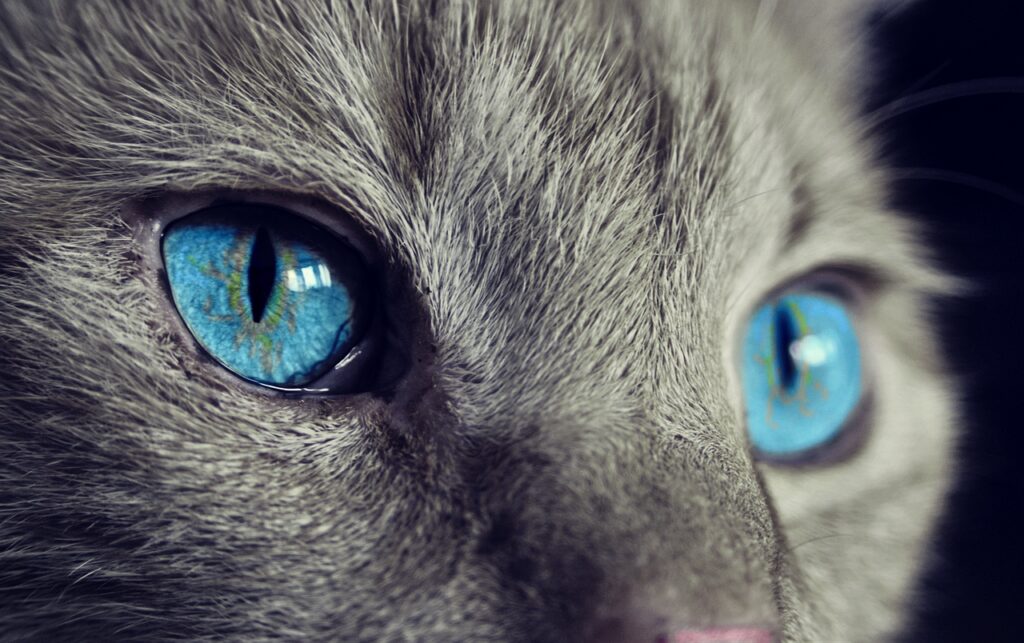Can Cats Eat Peas? – Yes, They can
For all the kitty parents pondering over their greens, yes, cats can safely nibble on peas. Peas are non-toxic to cats and often found in many commercial cat foods as a filler or fiber source. They’re a tasty little treat that can be enjoyed raw, frozen, or cooked, but always unsalted and unseasoned. Yet, moderation is key. Even though peas are safe, they should only complement your furball’s regular diet, not replace it.
Can Kittens Eat Peas?
Yes, but with caution. Just like adult cats, kittens can have peas, but their tiny tummies are more sensitive. Introduce peas very slowly and in small amounts. Since kittens need to develop their taste and digestion systems, it’s essential that the main focus of their diet is high-quality kitten food which is specially formulated for their growth.
Things to consider when feeding peas to kittens?
Kittens are actively growing, and their dietary needs are complex. Peas can be a good source of vitamins and minerals but remember, they lack the necessary proteins and amino acids kittens require. So, when you introduce peas to your kitten’s diet, ensure it’s a small part of a well-balanced meal and observe your kitty for any adverse reactions.
Nutritional Benefits of Peas for Cats – Why Peas are good for Cats?
Vitamins
Peas provide an array of vitamins like A, K, and the B vitamins, which help maintain optimum health in cats. These vitamins support various body functions—including vision, blood clotting, and proper nerve and muscle function.
Minerals
They’re also rich in minerals like magnesium, potassium, and iron, which are vital for keeping your cat’s heart healthy and maintaining strong muscles and bones.
Protein and Fiber
While not a primary protein source, peas do contain some plant-based protein, which can be beneficial. Plus, the fiber content aids digestion and can help keep your kitty regular.
Antioxidants
Peas contain antioxidants that are important for feline health, as they help combat free radicals and reduce inflammation.
Low-calorie snack
For cats who may be overweight, peas are a low-calorie snack option that helps satisfy hunger without the extra calories that come from treats high in fat and sugar.
Potential Allergies: Can Cats Be Allergic to Peas?
It’s rare, but yes, cats can develop allergies to any food, including peas. If you’re introducing peas to your cat for the first time, do so gradually and watch out for any changes in behavior or health.
Symptoms of Pea Allergies in Cats
- Gastrointestinal upset: Watch for signs like diarrhea or vomiting, which could indicate an intolerance or allergy to peas.
- Itchy skin: Allergies often reveal themselves through skin conditions. Look out for excessive scratching or any unusual skin issues.
- Respiratory issues: Less common, but some cats might show respiratory distress if they have an allergic reaction, such as coughing or wheezing.
What to Do If Your Cat Shows Symptoms?
- Consult a Vet: If your cat exhibits signs of an allergy, consult your vet immediately for a proper diagnosis and treatment plan.
- Dietary Review: Your vet might recommend an elimination diet to figure out the cause of the allergy.
- Immediate Care: If symptoms are severe, such as difficulty breathing, seek emergency veterinarian care.
Recommended Amount: How Much Peas Can a Cat Consume?
Peas should only be a small treat, not a meal. A teaspoon of peas a few times a week is generally considered safe for healthy adult cats. However, portions should be reduced for kittens and overweight cats. It’s best to consult with a vet for personalized advice.
Things to Consider When Feeding Peas to Cats
While peas are safe, they’re also high in carbohydrates, so they should be fed sparingly, especially to less active or diabetic cats. Always ensure the peas are plain, without any added salt, seasonings, or oils that could be harmful to your cat.
How to Feed Peas to Cats: A Quick Guide
Peas can make for a delightful surprise in your cat’s food bowl. Remember, they’re meant to be served as a treat and should never take the place of complete cat food that provides all the necessary nutrients.
Simple Peas Mix-In
Add a teaspoon of cooked or thawed peas into your cat’s usual kibble or wet food to introduce a fun texture and flavor.
Pea Puree Topping
Puree some steamed peas and use a scoop on top of your cat’s meal as a tasteful garnish they will surely paw over.
Frozen Pea Treats
For a quick and easy treat, especially on hot days, offer your cat a few frozen peas to nibble on – they’ll love the cool crunch!
Conclusion
So, can cats eat peas? Absolutely yes, but remember, moderation is key. Though peas offer nutritional benefits, they should be regarded as a treat and should complement a well-balanced diet tailored to your cat’s needs. Always observe your cat’s reaction to new foods and consult your vet if you notice any health concerns. Happy feeding!

